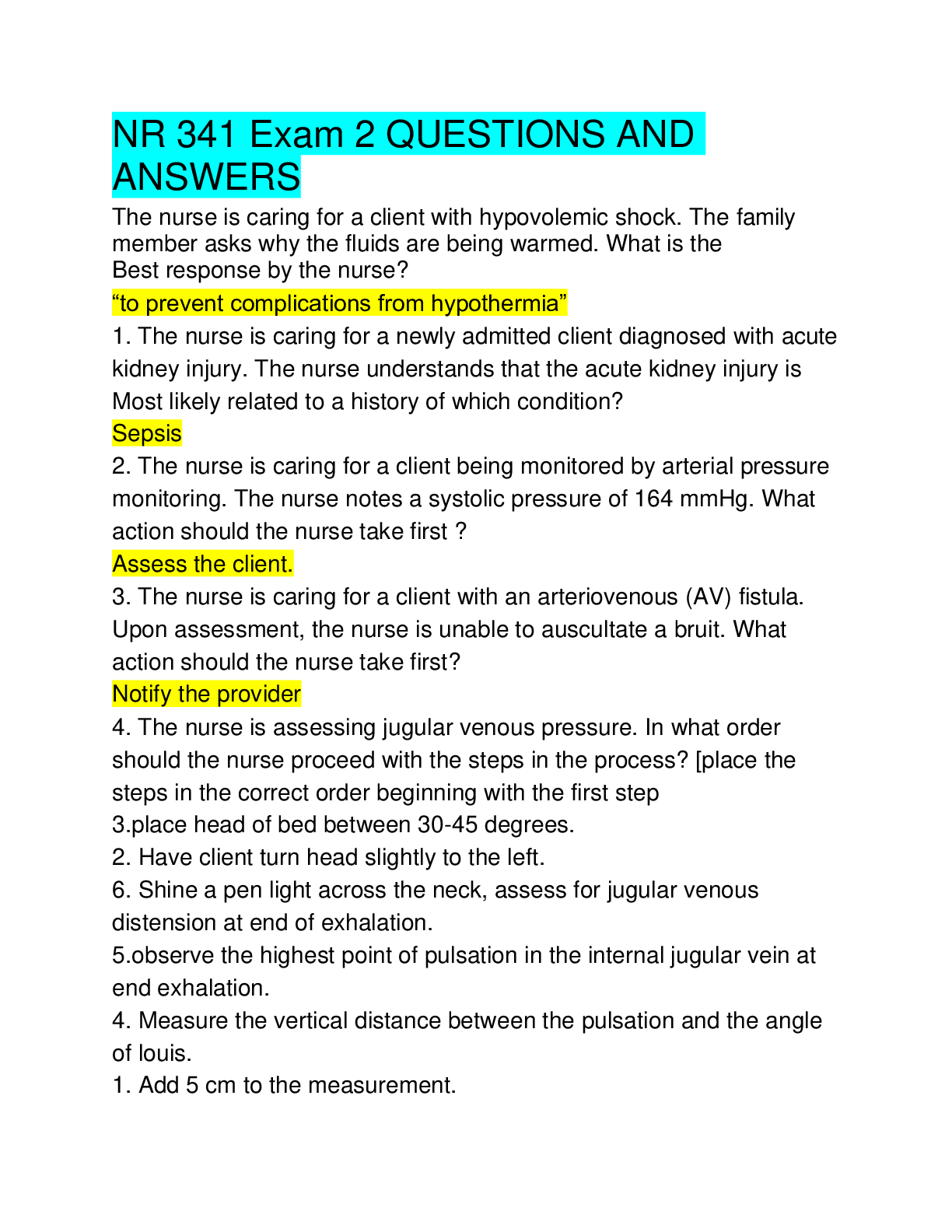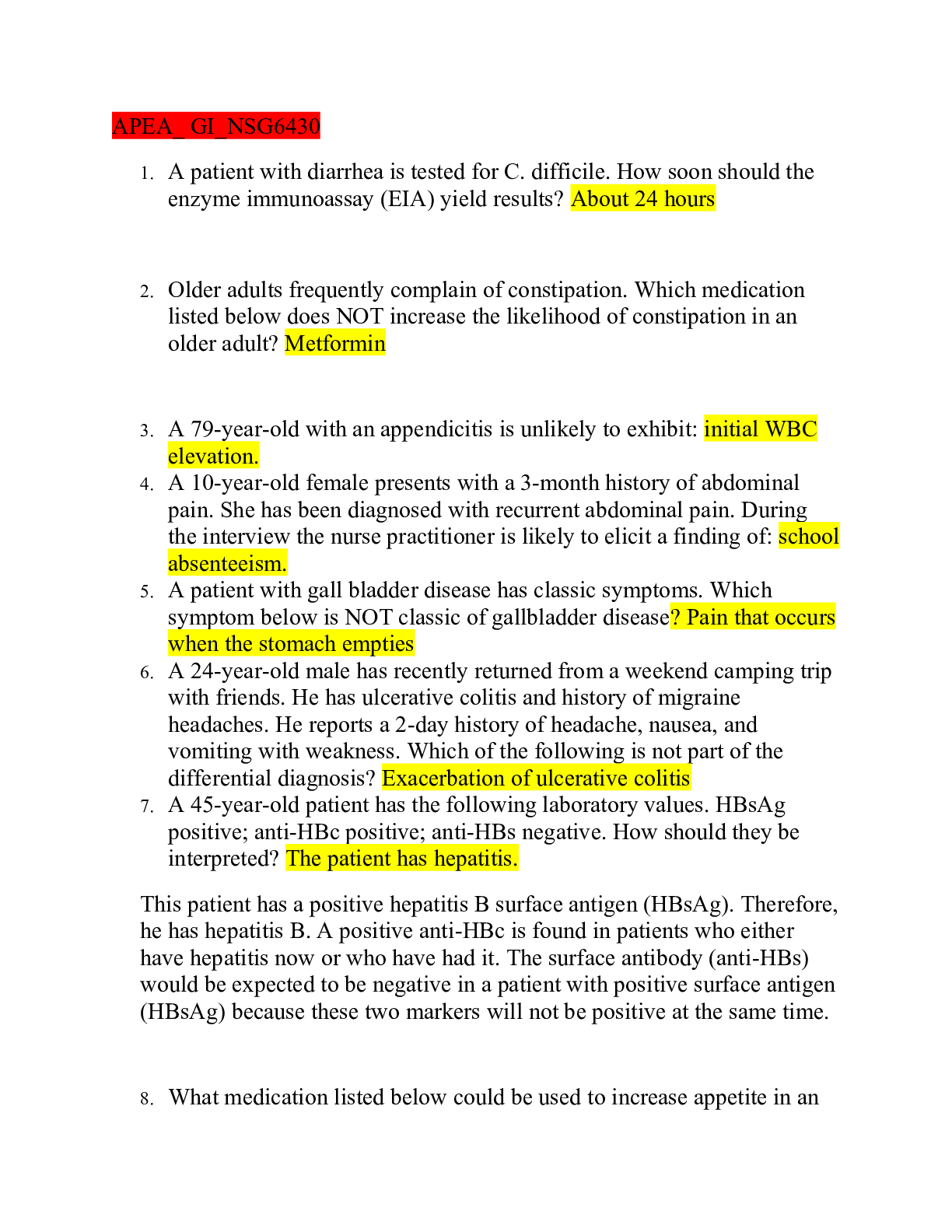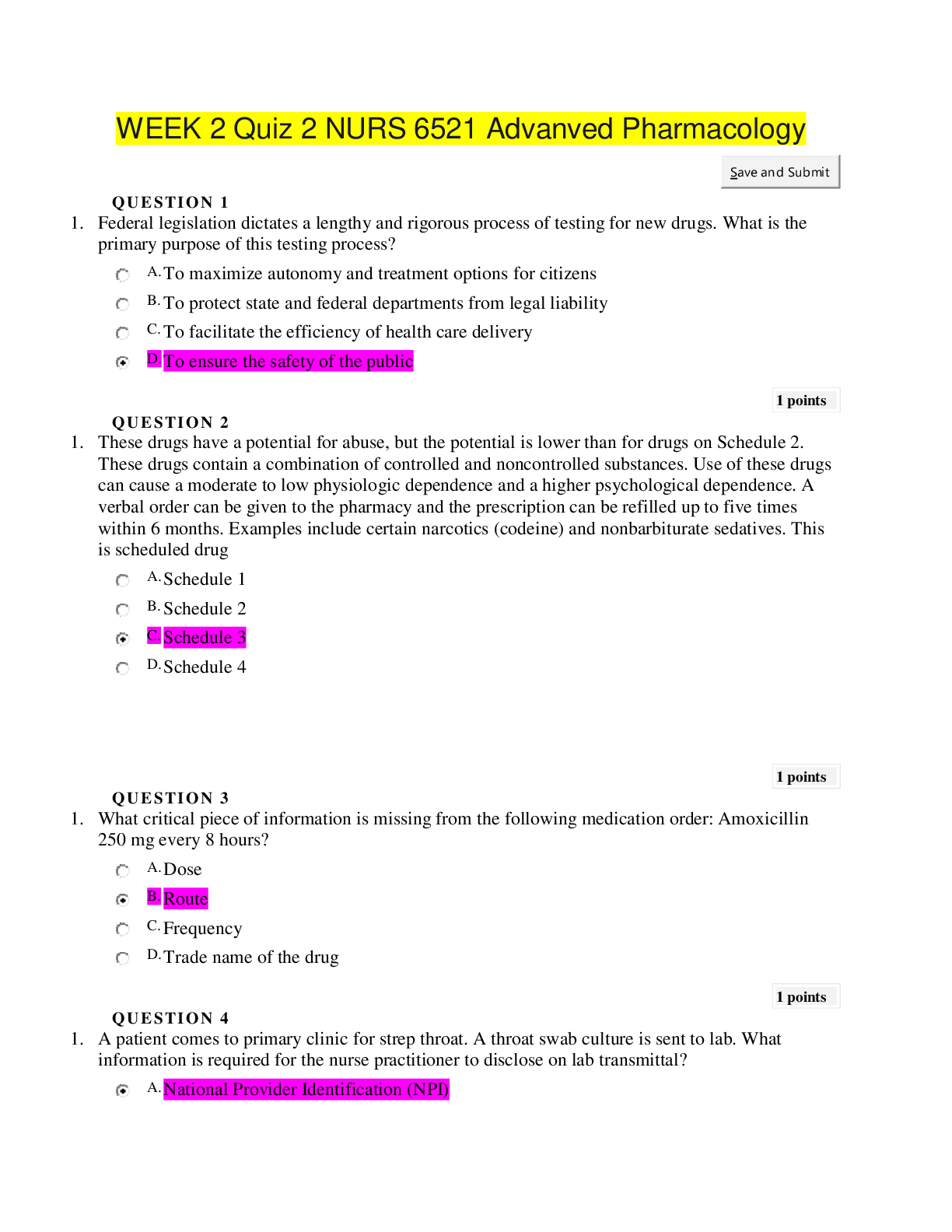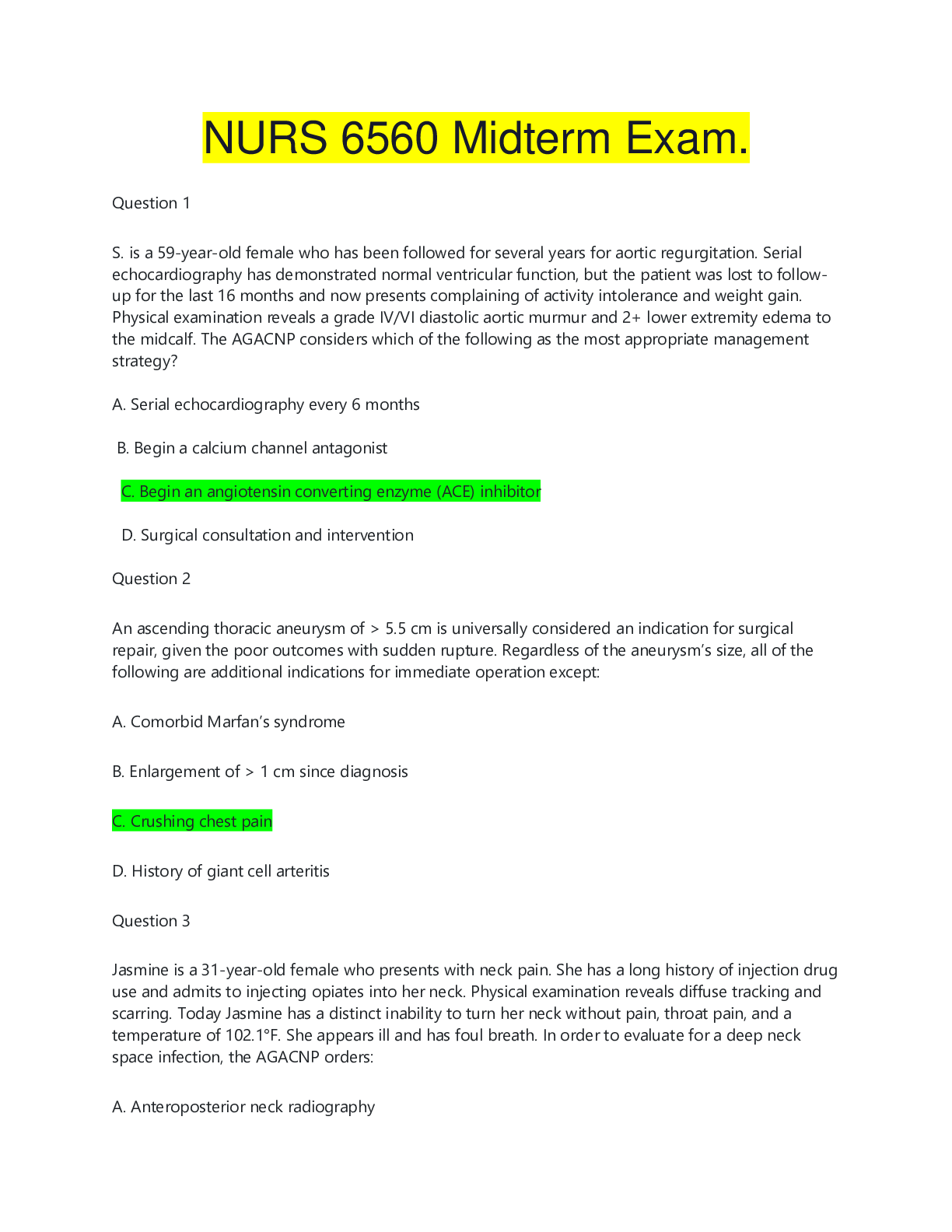Management > EXAM > MGT-435 WEEK 5 QUIZ QUESTIONS AND ANSWERS | LATEST ANSWERS (All)
MGT-435 WEEK 5 QUIZ QUESTIONS AND ANSWERS | LATEST ANSWERS
Document Content and Description Below
1. The author describes how GE emphasized action learning via a program that created teams of 8 to 12 people who came together to solve a real problem. Each team was coached by process experts, and em... ployees learned through participation and experience. What was the name of this program? Agility Change Process (ACP) Process, Participation, Experience (PPE) Change Acceleration Process (CAP) Learning in Action (LIA) The correct answer can be found in Section 5.4 under the heading “Create Learning Opportunities” in Organizational Change, Second Edition. 2. Who introduced the concept of a learning organization? Semco Group CEO Ricardo Semler Netflix CEO Reed Hastings Apple Chairman Steve Jobs MIT professor Peter Senge The correct answer can be found in Section 5.3 under the heading “Learning Organizations” in Organizational Change, Second Edition. 3. Learning organizations that continually plan, reflect, and make adjustments exemplifies constant readiness continuous planning improvised implementation action learning The correct answer can be found in Section 5.4 under the heading “Change and Learning Organizations” in Organizational Change, Second Edition. 4. Because of a special project, Khalib is asked to be part of a temporary group that is made up of individuals from marketing, customer service, engineering, and product development. The team has never worked together before, and will be dissolved once their work on this project is finished. This group would most likely be described as a(n)_______________. open walled system modular structure shape-shifting agile organization The correct answer can be found in Section 5.2 under the heading “Agile Organizations” in Organizational Change, Second Edition. 5. At which of Woolner’s (1995) five stages to becoming a learning organization does learning become a part of an organization’s day-to-day activities? You Answered the learning organization the developing organization the mature organization the forming organization The correct answer can be found in Section 5.4 under the heading “Becoming a Learning Organization: Woolner’s Five-Stage Model” in Organizational Change, Second Edition. 6. Netflix CEO Reed Hastings faced harsh criticism for which of the following reasons? failing to meet quarterly financial projections failing to apologize for separating DVD and streaming offerings into two different companies Correct! failing to adequately and honestly account for a price hike failing to ensure that DVDs arrived to consumers in a timely fashion The correct answer can be found in Section 5.2 under the heading “Learning Agility” in Organizational Change, Second Edition. 7. The use of past experience to decide future actions is known as which of the following approaches to learning? anticipatory learning action learning team learning adaptive learning The correct answer can be found in Section 5.3 under the heading “Levels and Types of Learning” in Organizational Change, Second Edition. 8. Which of the following does the author cite as an example of a learning organization? Correct! the U.S. Army the U.S. Navy SEALs NATO the UN Security Council The correct answer can be found in Section 5.4 under the heading “The U.S. Army” in Organizational Change, Second Edition. 9. Bart Becht, CEO of Reckitt Benckiser, is known for developing four keys to creating a highly successful adaptive (or agile) organization. Which of the following is NOT one of these keys? ruthless focus staying the course leveling the playing field embracing conflict The correct answer can be found in Section 5.2 under the heading “Experimentation” in Organizational Change, Second Edition. 10. Which of the following statements about mental models is FALSE? Mental models shape a person’s understanding of the world. People intentionally create mental models and are aware of their scope of influence. Because mental models are deep-rooted beliefs, they play an important role in motivating us. Mental models affect our personal and professional behavior and communications. The correct answer can be found in Section 5.3 under the heading “Mental Models” in Organizational Change, Second Edition. [Show More]
Last updated: 2 years ago
Preview 1 out of 4 pages

Buy this document to get the full access instantly
Instant Download Access after purchase
Buy NowInstant download
We Accept:

Reviews( 0 )
$13.00
Can't find what you want? Try our AI powered Search
Document information
Connected school, study & course
About the document
Uploaded On
Feb 14, 2021
Number of pages
4
Written in
Additional information
This document has been written for:
Uploaded
Feb 14, 2021
Downloads
0
Views
153

























